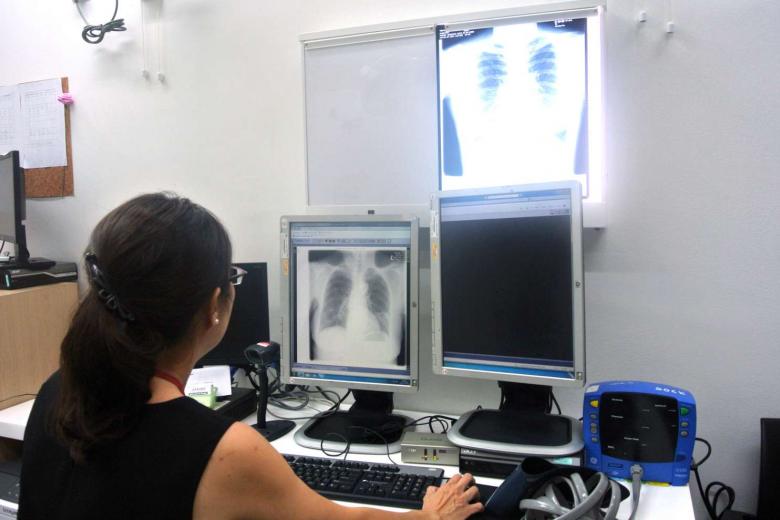Tuberculosis (TB) is an airborne disease transmitted through fine respiratory droplets from an infected person.
It usually affects the lungs but can also hit other parts of the body such as the brain, lymph nodes, kidneys, bones and joints.
Persons with TB are most likely to spread it to people who have close and prolonged contact with them, such as family members, friends and colleagues.
It is not spread through sharing drinks, utensils, cigarettes, or kissing.
There were 1,454 new TB cases among residents here last year, 34 more than in 2013. In the past 30 years, Singapore had more than 1,000 new cases a year.
According to the Health Ministry, there has been a resurgence of TB cases in recent years.
Symptoms of TB depend on the area affected. Some common symptoms include:
- a persistent cough that lasts three weeks or longer;
- low-grade fever;
- night sweats;
- fatigue;
- weight loss;
- chest pain;
- coughing up blood or sputum
A persistent cough lasting longer than three weeks, and accompanied by any of the other symptoms above, may indicate active TB disease.
If you experience such symptoms, you should consult your doctor right away. Your doctor will ask you to go for a chest X-ray and you may be referred to a specialist for further clinical and laboratory investigations. Early detection is key.
TB can be cured with a combination of different drugs taken over six to nine months.
However, if the treatment is incomplete, TB germs may develop a resistance to the drugs.
Second-line TB drugs must then be taken for a longer period, but chances of a cure will be significantly reduced.

